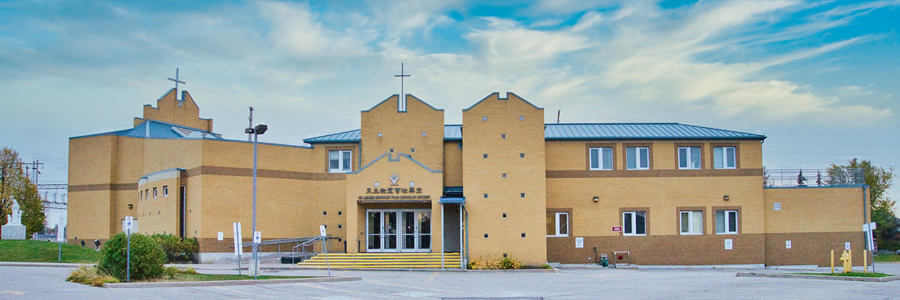- Accueil
- Notre communauté
- Notre foi
- Nos ministères
- Vie paroissiale
- Bulletin
- Nous contacter
- Recherche

The Lord is Near
The following is a reflection on the Gospel for Sunday, December 17, 2023, Week 3 of Advent (John 1:6-8, 19-28) from Bishop John A. Boissonneau, Northern Region Bishop for the Archdiocese of Toronto.
"Rejoice in the Lord, always… The Lord is near!" (Phil 4,4-5)
With these words of St Paul from the third Sunday of Advent the Liturgy (often known as "Gaudete" Sunday) invite us to joy.
Pope Francis said. “The closer the Lord is to us, the more joy we feel; the farther away he is, the more sadness we feel.” (Dec 14, 2020)
As we draw closer to Christmas, the Lord grows closer to us. Advent is a time of joy, because it revives for all humanity and especially for us believers, the long-awaited and joyful event in history: the birth of the Son of God from the Virgin Mary.
As the adult Jesus, his coming forth was prepared for by his cousin, John. John was a fiercesome prophet of God. John is a man of the desert. He totally separates himself from the world in order to give testimony to another world. Within his solitude he is able to hear the voice of God. And only in God is true joy.
C.S. Lewis, the English Christian writer of the last century, taught us, "God cannot give us a happiness and peace apart from Himself, because it is not there. There is no such thing.”
Echoing in our century, Pope Francis has a holy focus on the gift of joy. The first three sentences of his Apostolic Exhortation Evangelii Gaudium are:
“The joy of the gospel fills the hearts and lives of all who encounter Jesus. Those who accept his offer of salvation are set free from sin, sorrow, inner emptiness and loneliness. With Christ joy is constantly born anew.”
To know that God is not distant, but next to us; not indifferent, but compassionate; not a stranger, but the merciful Father that accompanies us with love, is the concept that allows us to live in a sense of joy and peace even when the daily problems and sad events cannot be removed. If we try to believe this, it brings peace to our life and as St Paul promises, “the peace of God which surpasses all understanding, will guard your hearts and minds in Christ Jesus.” This peace allows us to remain joyful at the core of our life even when we are beset with difficulties, tragedies and pain.
The unmistakable feature of the Christian joy is that it was able to coexist with suffering, because is all based upon love. In effect, the Lord for us "is near," to the point of becoming man, comes to fill or infuse us his joy, the joy to love. This is the key to understanding the serene joy of the martyrs in the middle to their tests, or the smile of the gentleness on the face of one who is in the pain: a smile does not offend, but comforts.
The existence of joy in the midst of pain and suffering is a Christian mystery. Someone like Mother Theresa guides us well to this point. Throughout her life she had a simple message that was proclaimed not as much with words as with deeds, rich and poor alike have felt inexplicably drawn into the mercy and solace of God's tender embrace. That, "God still loves the world today." That is the reason for joy.
The Lord is near.
Bishop John A. Boissonneau is Auxiliary Bishop of Toronto with responsibility for the Northern Region that includes 52 parishes in the York Region and Simcoe County. Bishop Boissonneau was born in Toronto and ordained to the priesthood on December 14, 1974. He served at the Chancery office and after graduate studies served from 1982 until 2001 in the education of priests at St. Augustine’s Seminary of Toronto. In additional to his regional responsibilities, he is also Vicar for Christian Education and Archdiocesan Liaison with the Catholic Faculties of Theology.
You are invited to join our video series this Advent by tuning in to our weekday reflections that will be posted on all of our social media sites. Feel free to comment and share these videos with friends and family!
Follow us:
